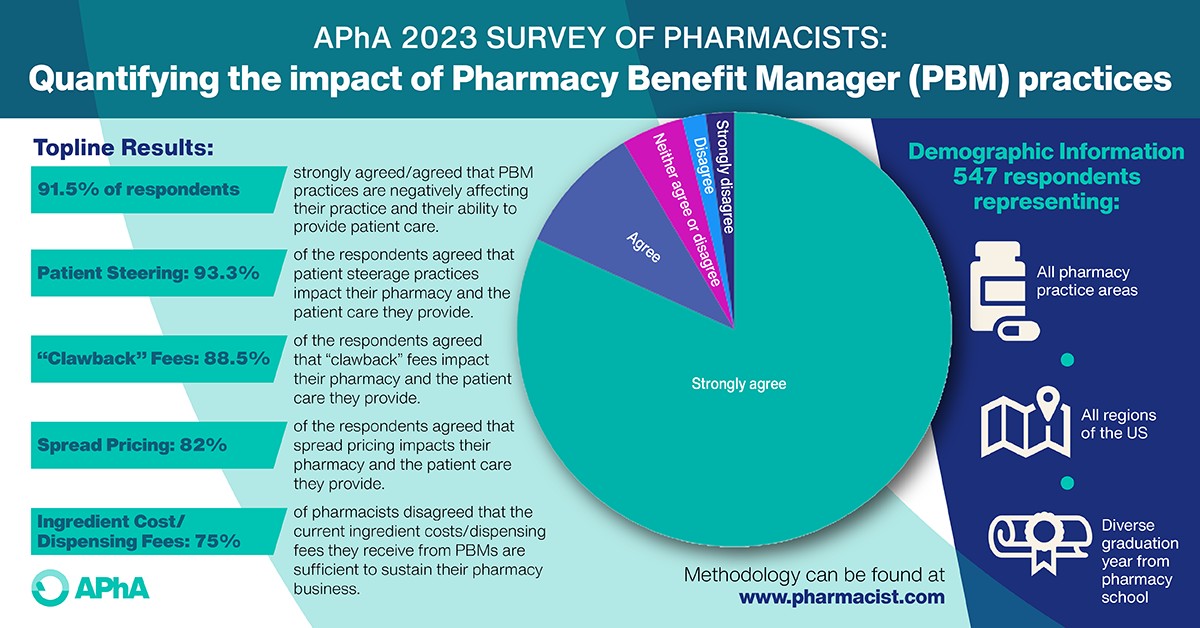WASHINGTON, DC—Today, APhA issued the following press release regarding the results of a recent survey.
PBM reform efforts have long been keystone issues for APhA’s members. In support of renewed interest in addressing these issues from lawmakers in Congress, federal regulatory agencies, and states, APhA’s survey sought to collect and quantify current pharmacists’ experiences with PBMs to inform policy makers and the public about their impact on pharmacies, pharmacists, and patients.
Survey respondents (n=547) represented all settings of pharmacy practice in all U.S. regions, and they were distributed across the spectrum, including recent graduates, longtime practitioners, and pharmacy owners. The survey was conducted by APhA from January 28, 2023, to February 15, 2023, and methodology can be found here.

Key findings included the following:
- 91.5% of respondents agreed that PBM practices are negatively affecting their practice and their ability to provide patient care.
- 93.3% of respondents agreed that patient steerage practices impact their pharmacy and the patient care they provide. (Patient steering is requiring or incentivizing patients to use certain pharmacies, often ones owned by the PBM.)
- 88.5% of respondents agreed that “clawback” fees impact their pharmacy and the patient care they provide. (These are fees collected by the PBM after the point of sale, increasing patient out of pocket costs for medications. They are also known as DIR fees or price concessions.)
- 82% of the respondents agreed that spread pricing impacts their pharmacy and the patient care they provide. (Spread pricing is a practice in which the PBM charges the plan sponsor more than they pay the pharmacy for a medication and keeps the “spread” as a profit.)
- 75% of pharmacists disagreed that the current ingredient costs/dispensing fees they receive from PBMs are sufficient to sustain their pharmacy business. This includes reimbursements from the PBM to the dispensing pharmacy for the cost of drugs and services provided to a patient.
- When asked about federal policy solutions that could alleviate PBM issues, respondents called for transparency and accountability from PBMs first and foremost.
“This latest APhA survey data adds to the increasing evidence that PBM practices and tactics are resulting in inflated out of pocket drug costs for patients and continued struggles for America’s pharmacies to keep their doors open to provide patient care. PBM reform is needed now. APhA will continue working with policymakers and other relevant parties to restore transparency, accountability, and equity to the health care marketplace,” said APhA Interim Executive Vice President and CEO Ilisa BG Bernstein, PharmD, JD, FAPhA.
APhA presented the results of this survey at a bipartisan congressional briefing which was sponsored by Reps. Larry Bucshon, MD, (R-IN); Buddy Carter (R-GA); and Diana DeGette (D-CO) on February 28, 2023.
###